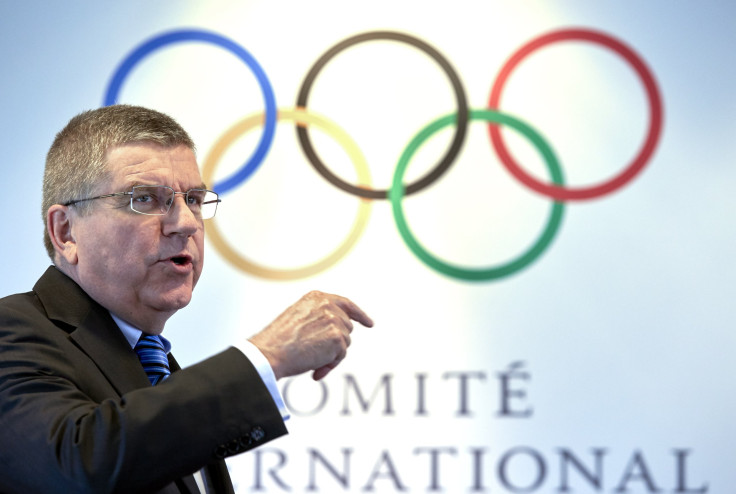Summer Olympics 2024 Host Candidates Revealed As IOC Touts Financial Aid, Transparency In Bidding Process

The International Olympic Committee took significant steps Wednesday to address the international community’s growing concerns about the transparency and cost of the Olympic bidding process. The IOC discussed its efforts to reform the process alongside the announcement of the five cities selected as candidates to host the 2024 Summer Games.
Olympic officials will select a bid from one of five cities – Los Angeles, Paris, Rome, Budapest and Hamburg, Germany – at a September 2017 vote in Lima. Budapest's candidacy won't be formalized until after a citywide referendum in November. The IOC will contribute $1.7 billion in "cash and services" toward the cost of hosting the 2024 Games no matter which city is selected. The organization also published key documents related to the bidding process, including a preliminary version of the 2024 Olympic host city contract, which outlines the requirements the host city must meet.
The bidding process for the 2024 Olympic Games will be the first such procedure conducted entirely under guidelines established by Olympic Agenda 2020, a set of reforms that aim to reduce hosting costs, address environmental and human rights concerns and make the bidding process transparent. Past failure to address these issues marred Olympic bids in Sochi, Russia, and Beijing. A growing fear of cost overruns, such as those experienced during Sochi’s $38 billion Winter Games boondoggle in 2014, recently led cities such as Boston to withdraw bids rather than risk financial disaster.
Five world-class cities in strong competition for Olympic Games 2024 http://t.co/q9h6mlbxY2 pic.twitter.com/39fUfKbKxT
— IOC MEDIA (@iocmedia) September 16, 2015“We are welcoming five outstanding and highly qualified Candidate Cities,” IOC President Thomas Bach said in a press release. “Olympic Agenda 2020 has shaped the Candidature Process more as an invitation and the cities have responded by engaging with the IOC through dialogue and cooperation. In the new invitation process the IOC learnt that all the candidates are embracing Olympic Agenda 2020 from their respective vision for the future of their city. Sustainability and legacy are the cornerstones of each candidature.”
The field of candidates to host the 2022 Winter Olympics dwindled to just two cities, Beijing and Almaty, Kazakhstan. Several prime candidates, including cities in Norway, Sweden and Poland, withdrew from the race due to cost concerns and a lack of support among their electorates. Ultimately, the IOC chose Beijing, despite international concern about its environmental and human rights records.
More recently, Boston Mayor Marty Walsh refused to sign an IOC charter after an outcry from residents, many of whom were skeptical the bid committee’s proposed $5 billion hosting budget was realistic. Olympic officials in Rio de Janeiro, the site of the 2016 Summer Games, have seen their budget balloon from an initial projection of $2.3 billion to more than $13 billion even as the city falls far short of its environmental cleanup goals.
Aside from the establishment of transparent benchmarks for human rights, environmental safeguards and press freedom, Olympic Agenda 2020 calls for host cities to cut costs through various reforms, including the use of existing stadiums. Previously, the IOC had insisted on new venues. Los Angeles’ proposed plan for the 2024 Summer Games centers on heavy use of existing stadiums.
© Copyright IBTimes 2025. All rights reserved.






















